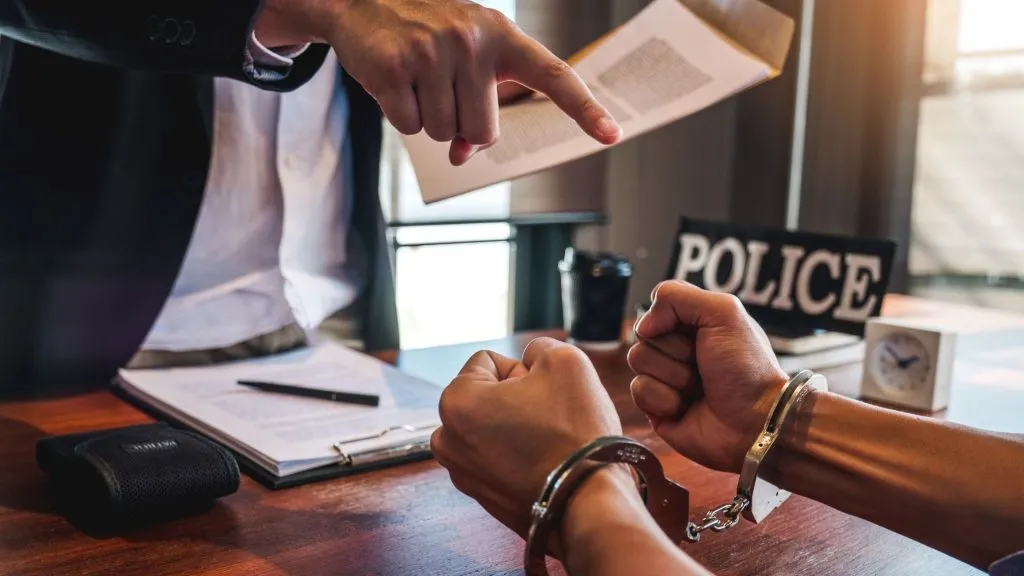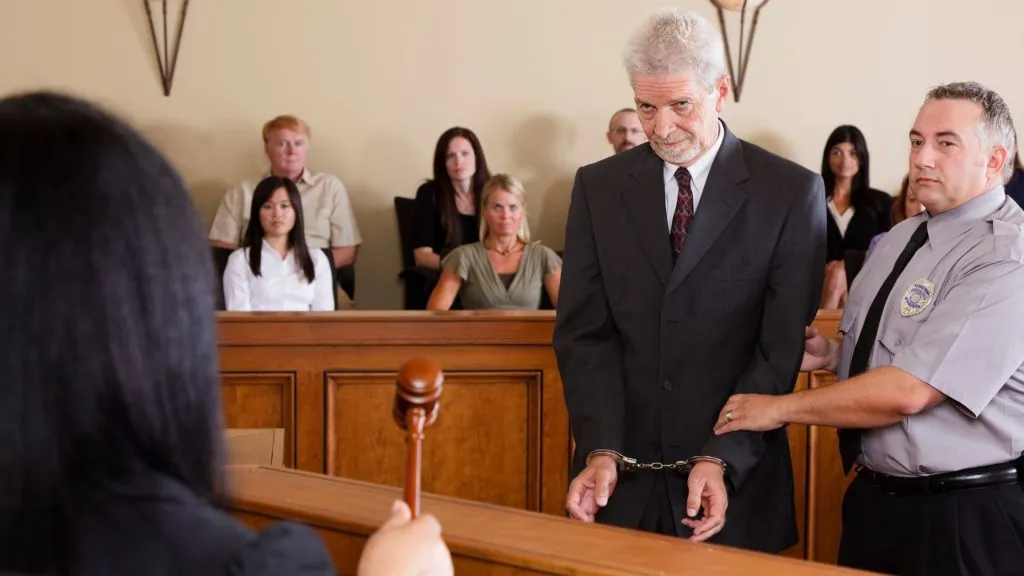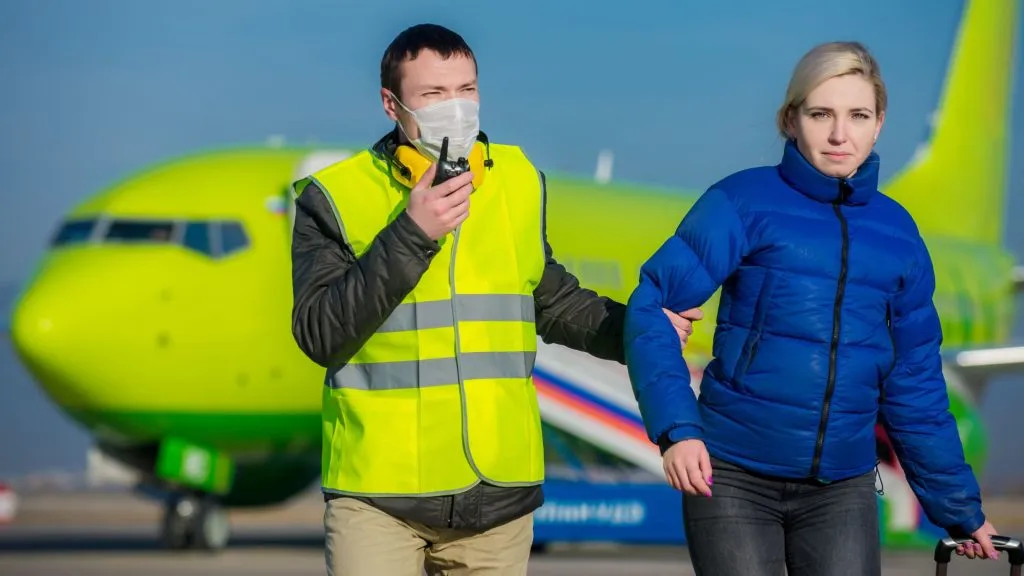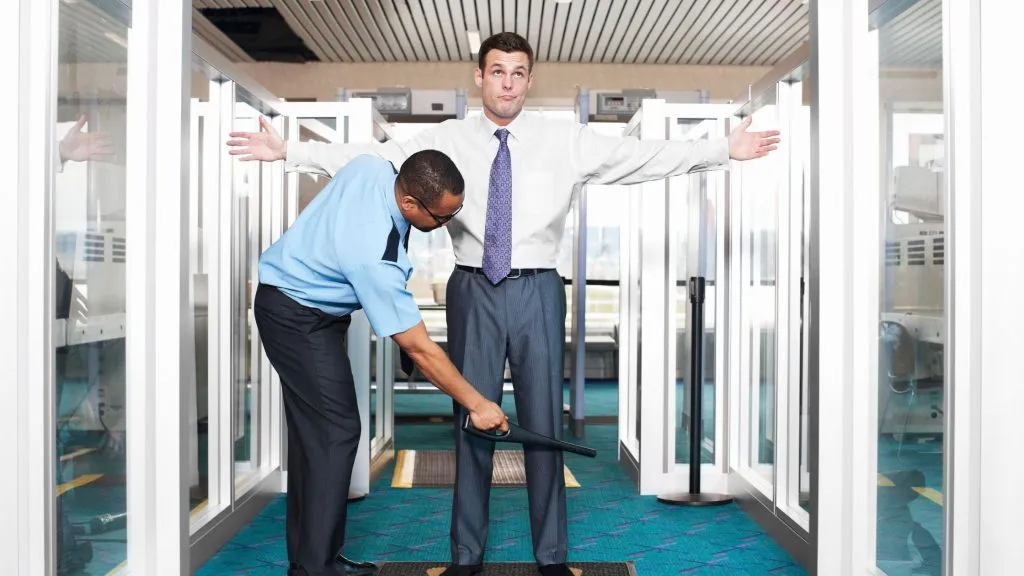Are you or someone you freaking out with the question, Can a felon fly on a plane? If that’s the case, you’re not alone. It’s a topic shrouded in hearsay and misconceptions. Today, we’re unpacking the baggage that comes with a felony conviction and air travel.
I’m here to guide you through the turbulence and provide some friendly advice. I will help clear the skies for your next journey. Let’s navigate the ins and outs of flying after a felony. We will ensure your travel plans are as smooth as your flight path.

Can a Felon Fly on a Plane?
When it comes to answering the pivotal question, Can a felon fly on a plane?. The skies are clearer than you might think. Contrary to popular belief, having a felony conviction doesn’t automatically ground your travel plans within the United States. It’s a common misconception that a criminal record revokes your right to air travel. Let’s bust that myth right now.
Understanding the TSA’s Stance
The Transportation Security Administration (TSA) is more concerned with security threats than your criminal past. Unless your conviction is for a crime deemed a security risk or if you have an active warrant, the TSA typically won’t prevent you from boarding a domestic flight. That’s good news for felons longing to spread their wings.
Navigating the Legal Airspace
It’s crucial, however, to understand that while TSA rules don’t prohibit felons from flying, other legal conditions might. For instance, if you’re on felony probation or have specific court orders, these could keep you grounded. It’s always best to check with your probation officer or a criminal defense lawyer to ensure you’re clear for takeoff.
The freedom to fly after a felony isn’t a closed door. It’s about advanced planning and understanding the restrictions that apply.

Obtaining Permission to Fly
Securing a U.S. passport is often the first step for a convicted felon aspiring to fly internationally. Contrary to what many may assume, having a criminal history doesn’t always mean you’re ineligible for a passport.
Unless federal law explicitly forbids it due to certain international travel restrictions, you can still fly. Unless someone is charged with drug trafficking charges or child support issues, a felon can typically obtain a US passport.
Navigating the Application Process
Applying for a U.S. passport involves a review of outstanding warrants or serious criminal charges that might flag you as a security threat. If your record is clean on these fronts, your chances are good. When applying, ensure all details about your criminal case, including substance abuse or rehabilitation, are accurately reported. This transparency is vital for maintaining good moral character in the eyes of the law.
Clearing for Takeoff
A U.S. passport isn’t a universal boarding pass, especially for international travel. Some countries conduct criminal background checks, and a serious crime could be grounds for criminal inadmissibility. Researching the visa application requirements for your intended destination well in advance is crucial. The State Department’s website can be a valuable resource for detailed information.

Legal Consultation
It’s best to consult a criminal lawyer to navigate complex international laws and regulations. An attorney-client relationship ensures you have someone to advocate for your case, whether dealing with the FAA or foreign country entry requirements. Remember, the goal is to pack your bag with a valid passport, not a suitcase full of doubts or concerns.
Can Felons Become Pilots?
Many individuals with a criminal conviction history might wonder, Can a felon fly on a plane, especially in the cockpit? It’s a valid question with a complex answer. The path to becoming a pilot is stringent, with background checks and Federal Aviation Administration (FAA) regulations in place to ensure safety in the skies.

The FAA’s Flight Plan for Felons
The FAA considers each application for a pilot’s license on a case-by-case basis. This means that a criminal offense doesn’t immediately disqualify you. However, serious repercussions can follow certain convictions, particularly those related to violent felonies, drug dealing, or any crime that could compromise the safety of flight crew members or passengers.
Clearance for Piloting
A medical certificate is a fundamental requirement for aspiring pilots, which includes passing a medical exam. This is where clinical evidence of your health, including any history of substance abuse or mental health issues, comes into play. Additionally, an outstanding warrant or unresolved legal matters, such as those involving a former fiancée or community supervision, could temporarily or permanently ground your ambitions.
Minor Offenses vs. Major Hurdles
Minor offenses don’t typically preclude you from becoming a professional pilot, but the nature of the crime is always a determining factor. For instance, misdemeanor DWIs might be viewed differently than a conviction for voluntary manslaughter or unlawful possession of a deadly weapon.

Navigating Legal Airspace
Before you invest time and resources into flight training, contact the appropriate government agency — the FAA or the Department of State — for guidance. Their websites often provides detailed information on the conditions that must be met to become an airline pilot, even for US felons.
The Reality of Flying Commercial
While you might get a student pilot certificate or a private pilot license, major airlines have their own rules that could be stricter than the FAA’s. These airlines must consider the best interests of their passengers, which often means a higher demand for pilots with clean records.
Your Next Steps To Becoming a Pilot
If becoming a pilot trainee is in your crosshairs, don’t let a criminal past deter you without first making a phone call to the FAA. Sometimes, lifting the nationwide bar on certain crimes, like drug charges, can open the door to opportunities previously closed. It’s the only time when reaching out for legal consultation and presenting your case might clear the runway for your pilot dreams.

Facing International Scrutiny
As a U.S. citizen with a past felony conviction, planning a trip abroad can feel like navigating through a storm. But with the right compass, you might be welcome to some amazing countries. The key lies in understanding each destination’s unique stance on admitting individuals with a criminal background.
Global Gatekeepers
Countries worldwide have varying degrees of openness when it comes to welcoming felons. For instance, a violent felon likely faces stringent entry barriers, especially in nations with a low tolerance for such offenses. On the other hand, some countries may consider the nature of the crime, the time elapsed since the prison sentence, and evidence of rehabilitation before granting entry.
Disclosing Your Past
Applying for a visa often requires disclosing sensitive information. When completing a visa application, honesty is not just the best policy, it’s the only policy.
A lot of people might not realize that even when you aren’t filling out paperwork for a visa, you are still receiving a visa. As a U.S. citizen there is passport privilege allowing visa on arrival for many countries. Those countries still have the right and many times the ability to check into your criminal past.

Navigating with Official Guidance
For up-to-date entry requirements, always check the government website of your destination country. Recent articles from the Associated Press or the Daily Wire can also shed light on current attitudes towards a U.S. citizen with criminal records, including any lifting of the nationwide bar on certain offenses.
Communication Is Crucial
Encountering airport officials with a felony in your history? Be prepared to present a bulletproof vest of documentation and a good reason for your travels. Should questions arise the following day or at the moment of entry, having clear, concise answers and paperwork in order is in your best interest.

Legal Liaisons and Law Enforcement
If the sea of international rules feel overwhelming, don’t hesitate to use a contact form for law enforcement agencies or legal experts who can provide guidance. They can offer detailed information on your specific situation. While you might feel embarrassed navigating travel as a felon, I assure you that legal experts have heard it before.
Journeying Forward
Remember, a previous conviction doesn’t have to anchor you to one place. By staying informed through official channels and a credible blog post like this, you can keep abreast of the evolving travel landscape, just as we have learned to navigate the changing tides of accessing past criminal records.
I think the best news for those with past felony convictions is that unless you have a specific court order, travel within the United States is allowed. So many people with criminal convictions from decades ago can breathe a big sigh of relief. Safe travels, and may your future adventures be as enriching as the destinations you aim to visit.


